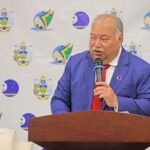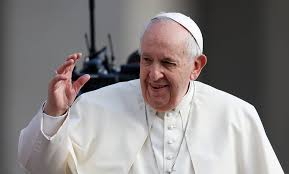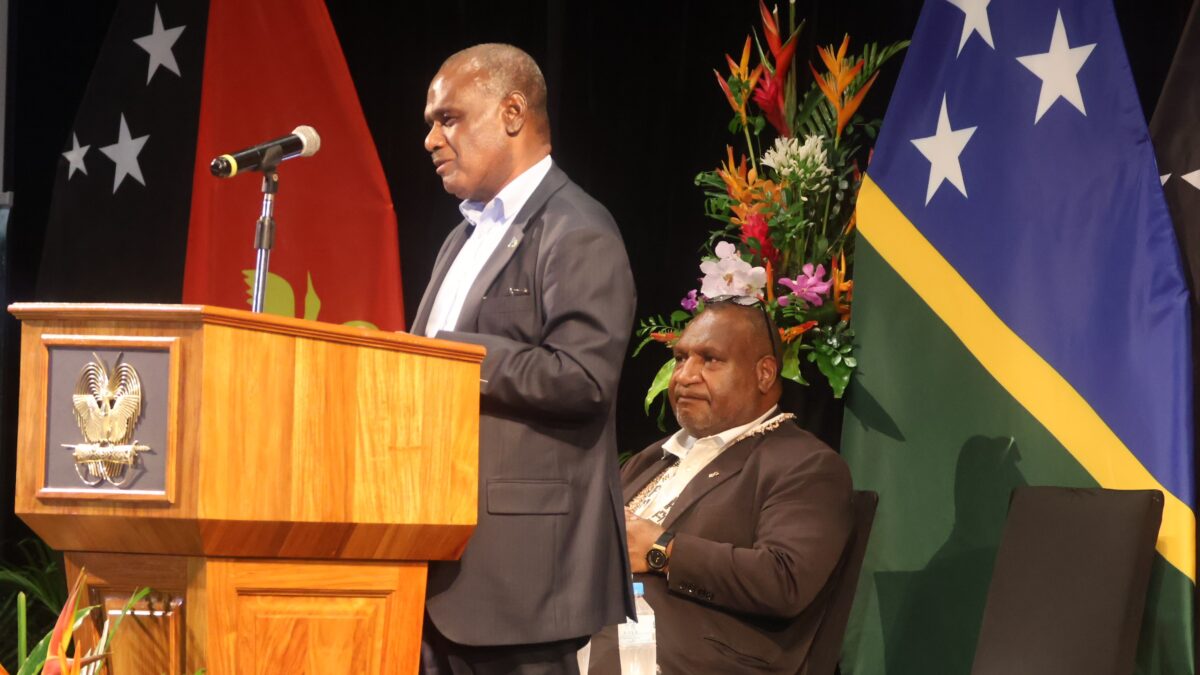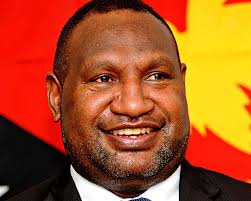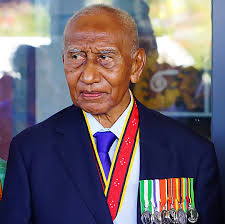Staff Writers in PNG
Pope Francis urged for improved treatment of workers in Papua New Guinea, an archipelago of around 600 islands in the Southwestern Pacific that has attracted significant interest from international companies for its gas, gold, and other resources.
During a speech to the nation’s political leaders, he passionately called for an end to recent ethnic violence that has claimed numerous lives. The 87-year-old pontiff emphasized that the country’s natural resources are “destined by God” for the benefit of the entire community.
He stated that while outside experts and large international companies may play a role in exploiting these resources, it is essential to prioritize the needs of local communities when distributing profits and hiring workers, ultimately improving their living conditions.
The pope advocated for a sustainable approach to resource development that “enhances the wellbeing of all, excluding nobody,” through international cooperation, mutual respect, and beneficial agreements.
Upon his arrival at the APEC Haus, a venue created for the 2018 Asia-Pacific Economic Cooperation summit, Francis was welcomed with a traditional dance by local performers dressed in vibrant attire featuring feathered headdresses and beaded skirts. Due to knee and back issues, the pope used a wheelchair as he entered, passing through a foyer adorned with a curved wooden screen inspired by traditional lakatoi tattoo designs.
In a speech welcoming Pope Francis, PNG Governor-General Bob Dadae expressed gratitude for the pope’s humanitarian efforts and recognized the Catholic Church as a vital partner in the nation’s development.
Papua New Guinea (PNG) is home to some of the world’s largest gold reserves and is a significant exporter of natural gas and oil. Since taking office in 2019, Prime Minister James Marape’s government has aimed to enhance local benefits from projects run by international corporations like Exxon Mobil Corp and Newcrest Mining.
A May economic report indicated that the country experienced modest growth of 2.7 percent last year. The World Bank has highlighted a “human capital crisis,” noting that nearly half of children in PNG face stunted growth.
PNG, with its diverse tribes, has a long-standing history of ethnic conflict. The United Nations reported that violent incidents in three remote villages in July likely resulted in at least 26 deaths.
Pope Francis expressed a strong desire for an end to tribal violence, urging everyone to take responsibility to halt the cycle of aggression and instead pursue constructive cooperation.
He also called for a “definitive solution” regarding the status of Bougainville Island, which is currently an autonomous region of PNG. The island voted overwhelmingly for independence in 2019, but political stalemate in PNG’s parliament has prevented the ratification of this decision.
Covering a vast landscape of mountains, jungles, and rivers, PNG has a population estimated between 9 million and 17 million, with around 2.5 million Catholics, according to the Vatican.
Pope Francis arrived in PNG on Friday evening following a trip to Indonesia and will remain until Monday. He will then continue to East Timor and Singapore before returning to Rome on September 13, marking his longest overseas journey to date.
While addressing serious topics, Francis also infused some humor into his speech, remarking on the multitude of languages spoken in PNG. He commented on how this linguistic diversity poses a challenge to the Holy Spirit, who seeks to create harmony among differences.
by Jake Sanders, Editor
Pope Francis urged for improved treatment of workers in Papua New Guinea, an archipelago of around 600 islands in the Southwestern Pacific that has attracted significant interest from international companies for its gas, gold, and other resources.
During a speech to the nation’s political leaders, he passionately called for an end to recent ethnic violence that has claimed numerous lives. The 87-year-old pontiff emphasized that the country’s natural resources are “destined by God” for the benefit of the entire community.
He stated that while outside experts and large international companies may play a role in exploiting these resources, it is essential to prioritize the needs of local communities when distributing profits and hiring workers, ultimately improving their living conditions.
The pope advocated for a sustainable approach to resource development that “enhances the wellbeing of all, excluding nobody,” through international cooperation, mutual respect, and beneficial agreements.
Upon his arrival at the APEC Haus, a venue created for the 2018 Asia-Pacific Economic Cooperation summit, Francis was welcomed with a traditional dance by local performers dressed in vibrant attire featuring feathered headdresses and beaded skirts. Due to knee and back issues, the pope used a wheelchair as he entered, passing through a foyer adorned with a curved wooden screen inspired by traditional lakatoi tattoo designs.
In a speech welcoming Pope Francis, PNG Governor-General Bob Dadae expressed gratitude for the pope’s humanitarian efforts and recognized the Catholic Church as a vital partner in the nation’s development.
Papua New Guinea (PNG) is home to some of the world’s largest gold reserves and is a significant exporter of natural gas and oil. Since taking office in 2019, Prime Minister James Marape’s government has aimed to enhance local benefits from projects run by international corporations like Exxon Mobil Corp and Newcrest Mining.
A May economic report indicated that the country experienced modest growth of 2.7 percent last year. The World Bank has highlighted a “human capital crisis,” noting that nearly half of children in PNG face stunted growth.
PNG, with its diverse tribes, has a long-standing history of ethnic conflict. The United Nations reported that violent incidents in three remote villages in July likely resulted in at least 26 deaths.
Pope Francis expressed a strong desire for an end to tribal violence, urging everyone to take responsibility to halt the cycle of aggression and instead pursue constructive cooperation.
He also called for a “definitive solution” regarding the status of Bougainville Island, which is currently an autonomous region of PNG. The island voted overwhelmingly for independence in 2019, but political stalemate in PNG’s parliament has prevented the ratification of this decision.
Covering a vast landscape of mountains, jungles, and rivers, PNG has a population estimated between 9 million and 17 million, with around 2.5 million Catholics, according to the Vatican.
Pope Francis arrived in PNG on Friday evening following a trip to Indonesia and will remain until Monday. He will then continue to East Timor and Singapore before returning to Rome on September 13, marking his longest overseas journey to date.
While addressing serious topics, Francis also infused some humor into his speech, remarking on the multitude of languages spoken in PNG. He commented on how this linguistic diversity poses a challenge to the Holy Spirit, who seeks to create harmony among differences.









